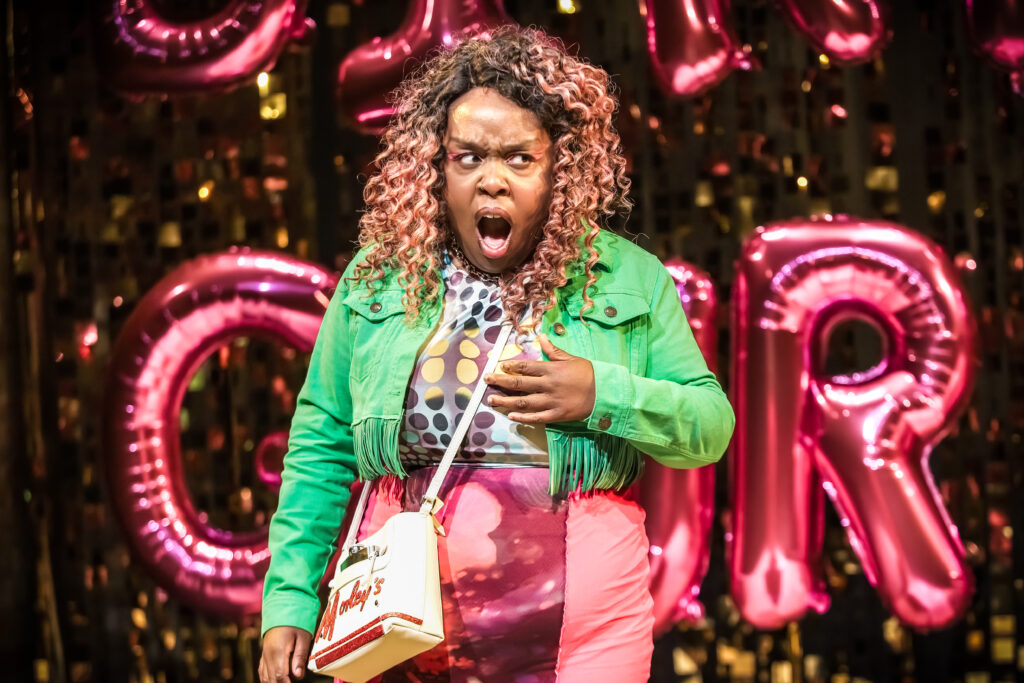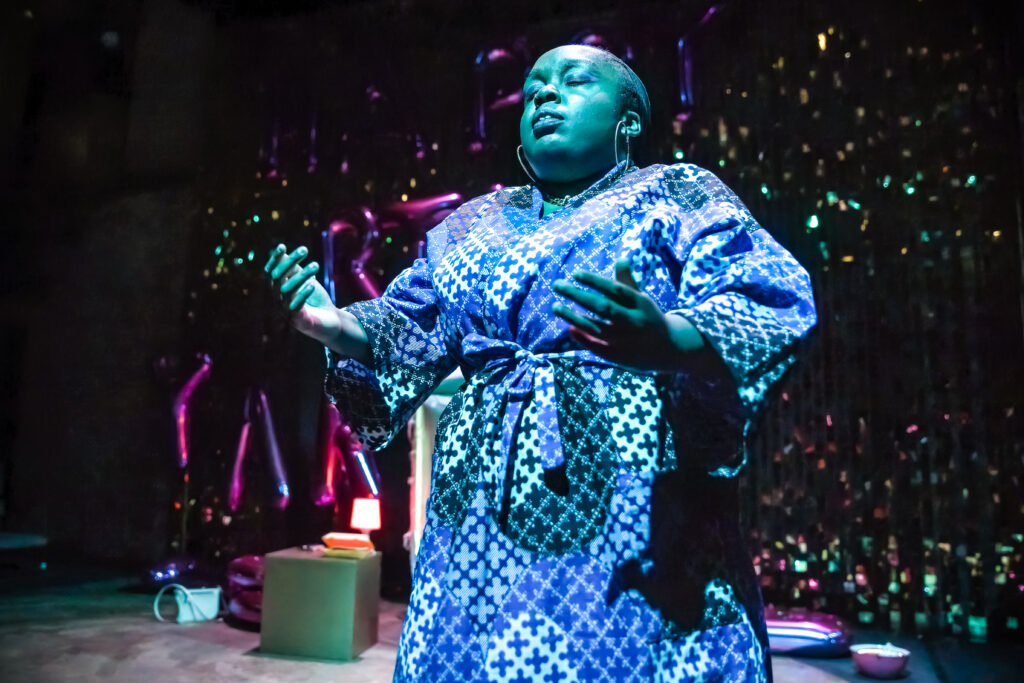
Nkenna Akunna’s play sees Lady (Tiajna Amayo) and Gemma, best friends since the age of five, haven’t spoken to each other for six months. When Lady shows up at Gemma’s twenty-fifth birthday party, she finds she has been replaced by new friends, and their relationship seems to have fallen completely apart.
After causing a scene and abandoning the party, Lady embarks on a solo trip home across the city via night buses and the kebab shop, giving us plenty of her embittered thoughts along the way. When Gemma finds her voice in the latter stages, we get both sides of the story and the play suddenly feels more solid and coherent after Lady’s biased stream of consciousness as she struggles to come to terms with her hearbreak.

We see Lady singing or rapping in musical set pieces by Akunna that clash tonally with the rest of the play. There is a sense that director Chinonyerem Odimba doesn’t quite know what to do with them. You can’t blame her: there’s little argument for their inclusion.
Amayo finds some sympathy for Lady, despite the character’s best attempts to repel any, but she finds herself stuck in Lady’s single dimension. After the fire of the opening confrontations, the production begins to lag as Lady’s diatribes tire her, and us, until Gemma’s arrival sparks life back into proceedings – even if it does come a little too late.
As an addendum: there is a caveat to all of the above. This review is based on the digital release of the production, filmed live in April this year at Stratford East. Some productions make the jump from stage to live recording more naturally than others, and while there are some nice camera touches, I get the impression that Amayo’s Lady might have had a different feeling in the room. But therein lies the risk in digital theatre.














